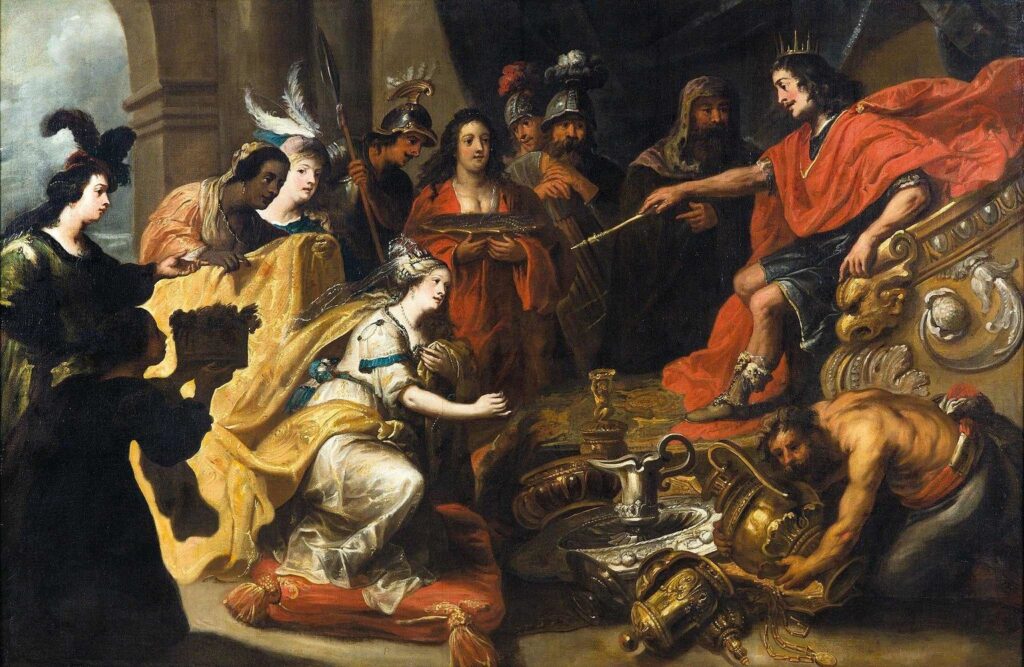
Pauwels Casteels / Public domain
King Solomon is traditionally considered the author of the Song of Songs, Proverbs, and Ecclesiastes.
“I sleep, but my heart is awake” (Song of Songs 5:2) is one of the most interesting verses for the Patristic tradition and the tradition of the prayer of the Church. This is generally understood to be the sleep of the physical senses while the spiritual senses are active and aware; often, this verse was cited in connection with visions or dreams in which a person had a direct experience of God while otherwise incapacitated.
Jacob, in the Old Testament, dreamed that he saw the Lord atop a ladder that reached from earth to heaven; the angels were ascending and descending the rungs of the ladder. Solomon himself was visited by God in a dream and given the choice of selecting which divine gift he preferred; he famously asked for wisdom. The apostle Peter, in the Book of Acts, thought he was dreaming when an angel came and helped him escape from prison. The prophet Joel promised that authentic encounters with God in dreams would happen when the Messiah arrived.
A direct experience of God, either awake or asleep, is often considered a sign that the person has reached the third stage of spiritual growth. These stages—purification, illumination, purification—often overlap and retract while still going forward. They are never linear and self-contained. No one is ever finished with purification before beginning illumination or experiencing moments of perfection. These moments of purification can be spurs to continue the work of purification or illumination.
“For many of [the Church fathers], the Song of Songs should be viewed as the last part of a trilogy written by Solomon, whose first and second parts were Proverbs and Ecclesiastes. Consistently with the tripartite ascent of the soul – or the Church – towards God that we find in the ascetic theological tradition of the Church, which consisted of the stages of purification-illumination-perfection (or union with God), these three books represented precisely this triad: Proverbs was seen as a work that represented moral purification, while Ecclesiastes reflected on the vanity of the transient world and thus was seen as a work of illumination through the contemplation of the world. The Song of Songs therefore, coincides with the third and final stage of the ascent of the soul or the Church towards God, and its symbolism of the union between the man and the woman symbolize the union with God.” (A. Andreopoulos, “The Song of Songs: The Asceticism of Love“)
